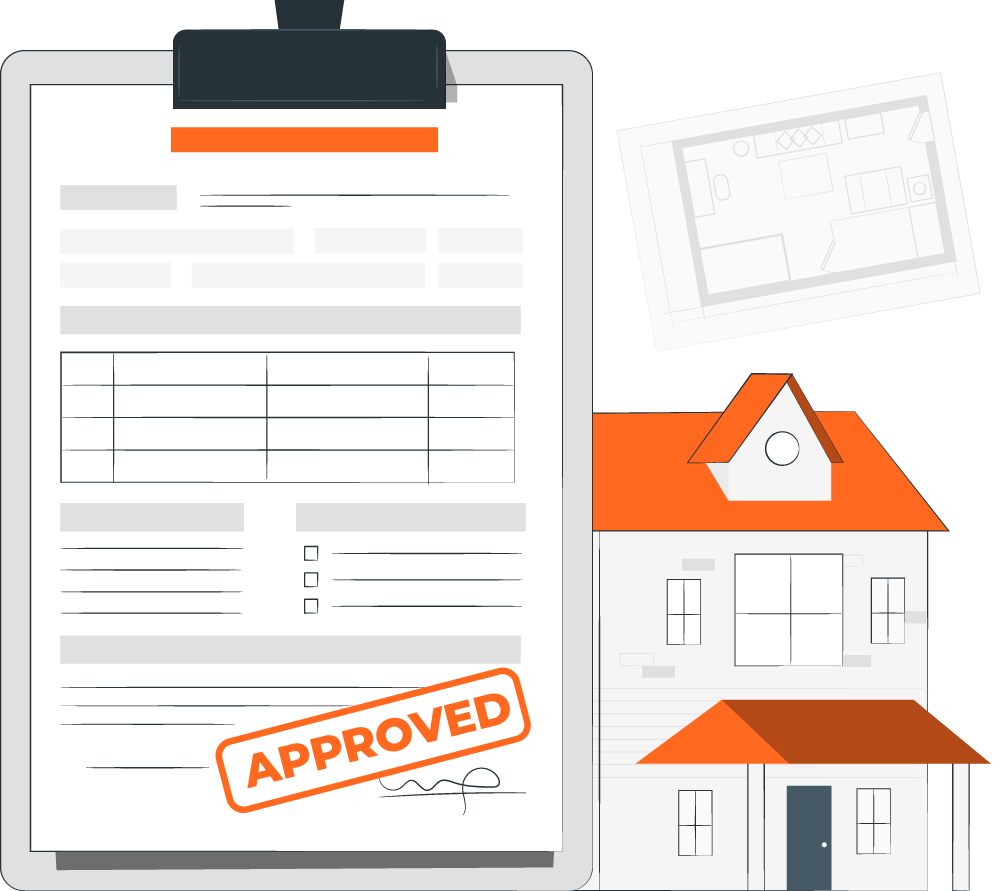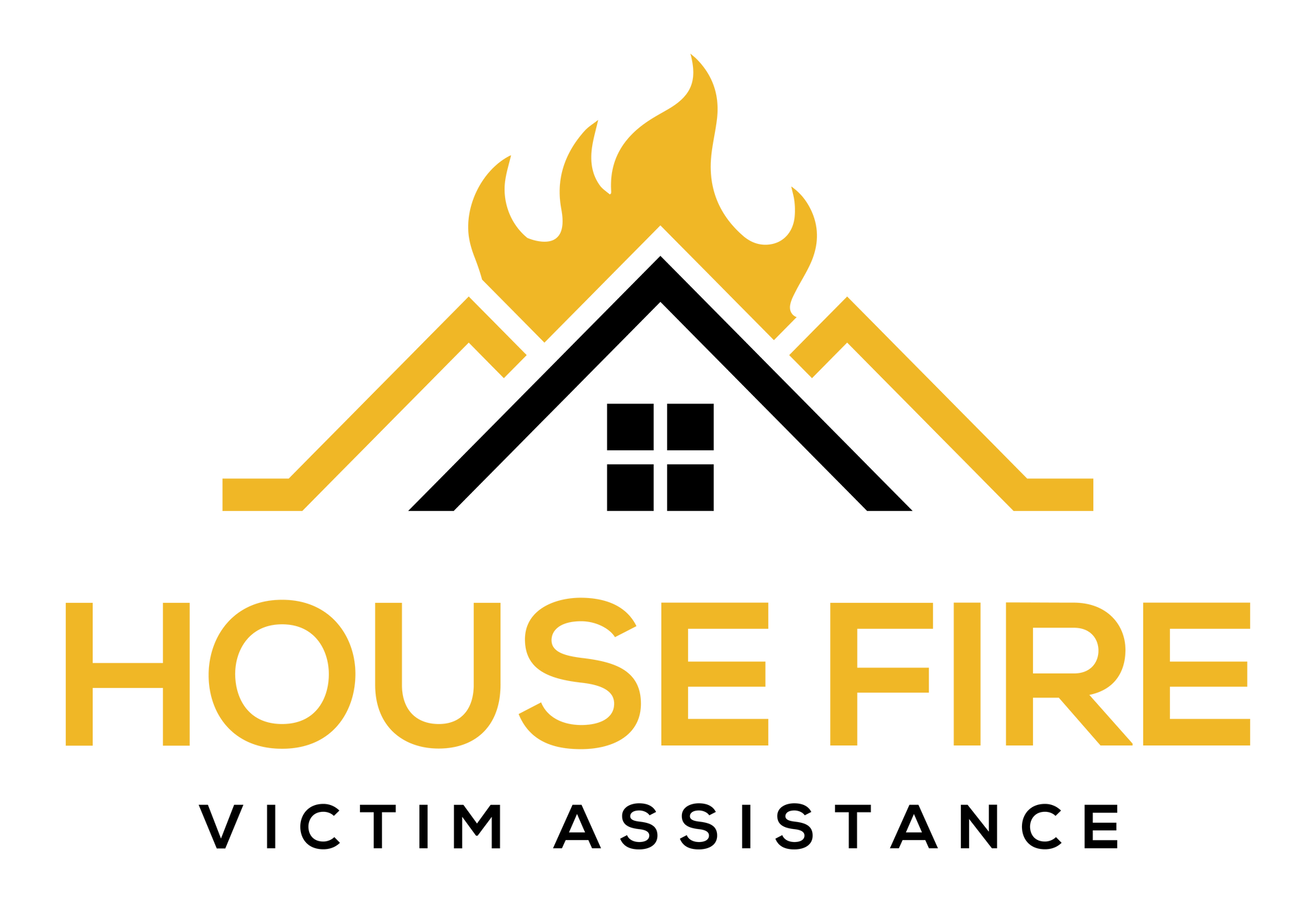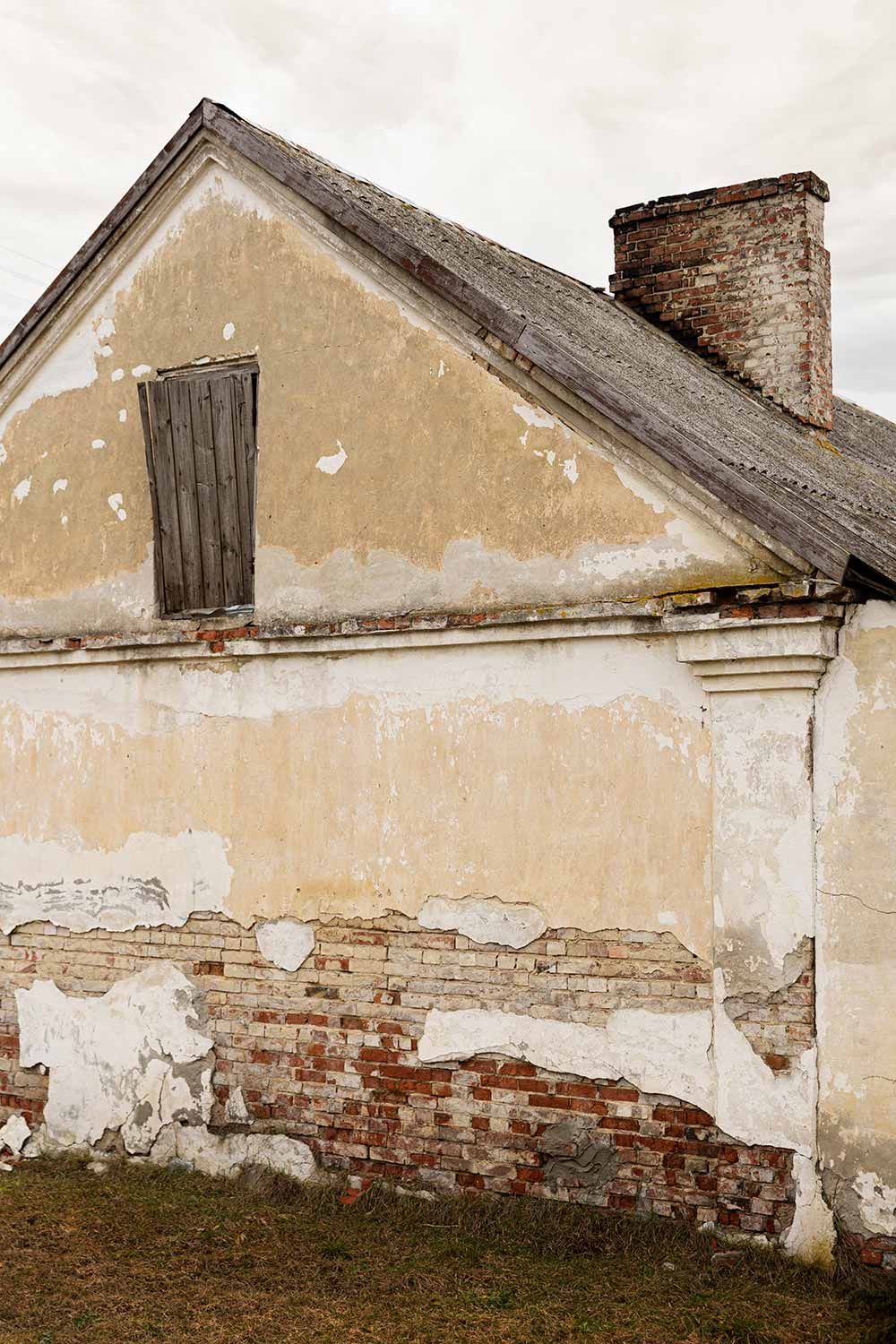Where to Get Help After House Fire No Insurance in California
Get Help After A House Fire From A-Z
Whether you need board up, fire restoration, insurance help, or wanting to sell as is
Homepage

The devastating reality of losing your home to a fire becomes even more challenging when you don't have insurance coverage. For California residents facing this crisis, a network of immediate support and detailed resources stands ready to help rebuild your life.
Emergency response organizations like the Red Cross spring into action with immediate necessities, while government agencies including FEMA and the California Office of Emergency Services (Cal OES) provide crucial financial support and recovery assistance.
The path forward may feel overwhelming, but California's robust support system offers multiple lifelines for uninsured fire victims. From emergency shelter programs and temporary housing assistance to specialized disaster loans and property tax relief, these resources work together to help stabilize your situation.
Local community organizations, faith-based groups, and professional networks also step in with additional support, ranging from donated services to crowdfunding assistance.
Understanding your options and taking prompt action can significantly impact your recovery journey. We'll explore the key initial steps to secure your immediate needs, assess available financial assistance programs, and connect with crucial community resources designed specifically for California fire victims.
Through this combination of
federal aid,
state support, and
local assistance, you can begin the process of rebuilding your life with confidence and hope.
First Steps After A House Fire
A house fire can turn your world upside down in minutes. I've worked with numerous families through this challenging time, and I've learned that taking swift, strategic action can make a significant difference in your recovery journey. Here's what you need to do right away, whether you have insurance or not.
Safety and Shelter Priorities
Your family's safety is non-negotiable. Here's what to prioritize:
- Contact the American Red Cross immediately for emergency assistance
- Accept temporary shelter arrangements if offered
- Secure essential supplies and immediate food needs
- Wait for official clearance before returning to your property
I can't stress this enough - resist the urge to enter your home without fire department approval. Even seemingly minor fire damage can compromise structural integrity and release harmful substances into the air.
Documenting the Damage
Though emotionally draining, proper documentation serves as your pathway to recovery assistance. Here's your documentation checklist:
- ke clear, well-lit photos of all exterior damage
- Capture detailed images of every affected room
- Photograph damaged personal belongings from multiple angles
- Create a room-by-room inventory list
- Note approximate values and purchase dates when possible
Think of this documentation as your recovery roadmap - it's essential for FEMA grants, SBA disaster loans, and other assistance programs you might need later.
Contacting Essential Authorities
Start building your support network immediately with these crucial contacts:
- Local fire department (request a copy of the fire report)
- California Office of Emergency Services (Cal OES)
- Your mortgage lender (if applicable)
Pro tip: Keep a dedicated recovery folder - either physical or digital - with detailed notes from every conversation. Include:
- Names of representatives
- Dates and times of discussions
- Key points covered
- Next steps or action items
- Reference numbers for follow-up
This organized approach might feel overwhelming now, but it will prove invaluable as you explore various assistance programs and work toward rebuilding your life.
Immediate Financial Relief Options
I've helped many families explore the challenging aftermath of house fires, and I can tell you firsthand that understanding where to find immediate financial help makes all the difference. If you're in California and dealing with fire damage without insurance, several organizations stand ready to provide crucial support.
01.
FEMA Disaster Assistance Programs
FEMA's disaster assistance programs have been a lifeline for many uninsured homeowners I've worked with. Here's what you need to know:
- Apply through FEMA's website or hotline for non-repayable grants
- Receive support for temporary housing costs
- Get funding for essential home repairs
- Access additional help for medical expenses
- Replace essential personal property
The most important tip I can share? Don't wait to apply -
FEMA's deadlines are strict, and earlier applications typically receive faster responses.
02.
California State Emergency Support
Through my experience with the California Office of Emergency Services (Cal OES), I've seen how their coordinated relief efforts can transform a seemingly hopeless situation. They offer:
- Professional debris removal assistance
- Access to rebuilding resources
- Connections to local government support
- Information about lesser-known state aid programs
Cal OES has become my go-to recommendation for detailed support, as they excel at connecting residents with both state and local resources during the recovery process.
03.
Red Cross And Emergency Services
The American Red Cross has consistently amazed me with their rapid response and practical support for fire victims. Their immediate assistance includes:
- Emergency financial aid for urgent needs
- Temporary shelter arrangements
- Essential supplies (clothing, food, personal care items)
- One-on-one support from dedicated caseworkers
- Help developing a personalized recovery plan
I've witnessed countless families find hope through the Red Cross's emotional support services. Their experienced staff truly understands the trauma of losing a home and provides invaluable guidance through various assistance programs.
Tip: Keep a detailed log of all your communications and any assistance received - you'll need this information for additional support applications.
Housing Solutions For Fire Victims
Losing your home to a fire is devastating, and I know from working with many families that finding safe shelter becomes your top priority. Let me help you explore the available housing options that can support you through this challenging transition.
Short-Term Emergency Shelters
The Red Cross and local community organizations are your immediate lifeline after a fire. I've seen firsthand how these
emergency shelters become a sanctuary for families in crisis, offering:
- Clean, comfortable sleeping areas
- Three daily meals
- Private bathroom facilities
- Basic toiletries and necessities
- Access to trained support staff
While temporary, these shelters provide a stable foundation where you can catch your breath and connect with caring professionals who'll help map out your next steps.
Temporary Rental Assistance Programs
FEMA's rental assistance program has been a game-changer for many families I've worked with. Here's what you need to know:
- Covers rent and essential utilities
- Flexible payment periods based on your situation
- No immediate payback required
- Simple application process through FEMA
- Additional support from local housing authorities
Many local nonprofits also offer rental vouchers and can help with security deposits. Having this financial breathing room lets you focus on putting the pieces back together without worrying about immediate housing costs.

Long-Term Housing Alternatives
Once you're ready to think about permanent housing, several options can help you rebuild your life:
- Construction loans for rebuilding your home
- Staged funding release
- Flexible payment terms
- Professional construction oversight
- Private bridge loans
- Quick approval process
- Competitive interest rates
- Flexible use of funds
- Transitional housing programs
- Stable, apartment-style living
- Extended stay options
- Support services included
- Affordable monthly payments
Stay connected with your housing counselors – they're your best resource for discovering new programs and opportunities. I've seen many families successfully move forward through this journey, and with the right support, you can too.
Government Aid Programs In California
Exploring life after a house fire without insurance can feel overwhelming, but California's government agencies offer a lifeline through various support programs. I've helped many families access these resources, and I can tell you firsthand that understanding these programs can make a tremendous difference in your recovery journey.
✅ Cal OES Support Services
The California Office of Emergency Services (Cal OES) stands as your primary partner in disaster recovery. Through my experience working with fire victims, I've seen how their extensive support system can transform a seemingly impossible situation into a manageable recovery plan.
Key Cal OES services include:
- Immediate disaster relief coordination
- Professional debris removal assistance
- Expert rebuilding guidance
- Personalized case management
- Resource connection services
Each case manager develops a custom recovery strategy based on your specific circumstances, ensuring you receive every available benefit during this challenging time.
✅ SBA Disaster Loan Options
Don't let the name fool you - the Small Business Administration (SBA) offers essential support for homeowners through their disaster loan program. These loans feature:
- Below-market interest rates
- Flexible repayment terms
- Simplified application process
- Dedicated loan officers
- Extended repayment periods
Having guided several families through this process, I can assure you that while taking on a loan might seem complex, SBA disaster loans often prove to be the most affordable and accessible path to rebuilding your home.
✅ Property Tax Relief Programs
Your county assessor's office provides crucial financial breathing room through property tax relief programs. Here's what you need to know:
- Immediate tax burden reduction
- Damage-based property reassessment
- Temporary relief during rebuilding
- Simple claim filing process
- Significant potential savings
To maximize your benefits, file your claim promptly after the fire occurs. I've seen this program provide essential financial relief to countless families during their recovery process.
Remember to maintain detailed records of all your communications and documentation throughout your recovery journey. These government programs might require some patience, but the support they provide can significantly ease your path forward. Don't hesitate to ask questions - these programs exist to help you rebuild your life.
Community And Nonprofit Resources
I've seen firsthand how California's communities come together during crisis situations, creating an incredible network of support for house fire victims. Through my experience working with various organizations, I've discovered numerous resources that can provide both immediate relief and long-term support during your recovery journey.
Local Relief Organizations
The American Red Cross stands at the forefront of disaster response in California communities, offering:
- Emergency shelter arrangements
- Immediate access to food and water
- Essential supplies distribution
- Emergency funds for urgent needs
- Connections to additional community resources
Local donation centers have become essential hubs for recovery support, where you can find:
- Clothing for all family members
- Basic furniture pieces
- Essential household items
- Personal care products
These organizations work collaboratively, creating a seamless support network. From my experience, registering with one organization often unlocks access to multiple assistance programs.
Faith-Based Support Networks
Faith-based organizations throughout California extend their helping hands to all fire victims, regardless of their religious beliefs. Having worked alongside these communities, I've seen them provide:
- Temporary housing solutions
- Hot meal programs
- One-on-one emotional counseling
- Essential items distribution
- Volunteer cleanup teams
Their established community networks offer a unique combination of practical assistance and emotional comfort. Many maintain well-organized resource centers where you can find everything from daily necessities to larger household items.
Professional Services Donations
After a house fire, many compassionate professionals step forward to offer their expertise. Here's what's typically available:
- Legal Support:
- Pro bono insurance claim assistance
- Help with government benefit applications
- Legal document recovery guidance
- Construction Services:
- Free rebuilding consultations
- Discounted renovation services
- Expert advice on restoration options
- Mental Health Support:
- Free crisis counseling
- Grief support groups
- Family therapy services
- Financial Guidance:
- Pro bono financial planning
- Assistance fund management
- Budget reconstruction advice
These community resources create an integrated support system that addresses both immediate needs and long-term recovery goals. Each organization brings unique strengths and services to the table, making it beneficial to connect with multiple groups during your recovery process.
Financial Recovery Strategies
Rebuilding your financial life after a house fire without insurance coverage can feel overwhelming, but I've helped many families steer themselves through this challenging journey. Let me share some proven strategies that can help you create a solid foundation for recovery.
Alternative Lending Options
I've found that exploring
non-traditional financing paths often yields surprising results. Here are some reliable options to consider:
- Construction loans: These provide structured financing with staged fund releases as your rebuild progresses
- Hard money lenders: Perfect for quick access to funds, though interest rates run higher
- Bridge loans: A temporary lifeline to cover immediate expenses while securing long-term financing
A tip: Even with less-than-perfect credit, many private lenders will work with you to create manageable payment terms.
Crowdfunding And Fundraising Methods
The digital revolution has transformed how we can gather community support. During my years helping families recover from disasters, I've seen remarkable success with:
- GoFundMe campaigns that share compelling personal stories
- Local fundraising events backed by community businesses
- Social media awareness campaigns
- Partnership opportunities with local media outlets
Remember to craft your story authentically - people connect with genuine experiences and specific needs.
Debt Management Solutions
Managing existing debts while recovering requires a strategic approach. Here's what I recommend based on successful recovery stories:
Contact creditors immediately about hardship programs
Explore mortgage payment modifications or forbearance options
Partner with nonprofit credit counseling agencies for free guidance
Develop a structured debt management timeline
Many of my clients have found incredible relief through hardship programs, which can temporarily reduce or suspend payments during crisis situations.
The path to financial recovery becomes clearer when you combine these strategies thoughtfully. Take time to review each option's terms carefully, and don't rush important financial decisions.
Through my experience helping fire survivors rebuild, I've learned that sustainable recovery plans must balance immediate needs with long-term financial health. Remember, you're not just rebuilding a house - you're reconstructing your financial future.
Property Options And Decisions
After experiencing a house fire, you're faced with life-changing decisions about your property's future. I've worked with numerous families in similar situations, and I've found that understanding each option thoroughly helps create a clearer path forward.

Rebuilding Considerations
The rebuilding journey requires careful planning and expert guidance. Here's what you'll need to evaluate:
- Building Code Requirements
- Current local regulations may differ from when your home was built
- The California Office of Emergency Services (Cal OES) provides essential guidance
- Debris removal assistance is available through official channels
- Financial Planning
- Construction loans offer staged funding as work progresses
- Insurance settlements can affect your rebuilding budget
- Additional costs may arise from updated building requirements
- Contractor Selection Look for reconstruction specialists with:
- Proven experience in fire damage restoration
- Understanding of insurance claim processes
- Strong track record of completing similar projects
Property Sale Possibilities
Sometimes, selling your fire-damaged property offers a fresh start. I've seen many homeowners find relief in this option when rebuilding feels overwhelming. Here's what to consider:
- Market Options
- Real estate investors specializing in damaged properties
- Cash buyers offering expedited purchasing
- Traditional market listing possibilities
- Professional Support
- Work with agents experienced in fire-damaged properties
- Seek accurate property value assessments
- Connect with legitimate investors through verified channels
Land Management Choices
While weighing your long-term decisions, proper land management becomes crucial. Here's how to protect your investment:
- Immediate Safety Measures
- Install temporary fencing
- Remove hazardous materials
- Secure the property against unauthorized access
- Property Maintenance
- Clear debris systematically
- Maintain compliance with local regulations
- Address any environmental concerns
- Legal Considerations
- Check local planning department requirements
- Understand vacant land maintenance obligations
- Monitor property tax outcomes
Your recovery journey is unique, and each option presents distinct advantages. Take time to evaluate your financial situation, emotional readiness, and long-term goals. Local disaster recovery experts and property professionals can provide valuable insights crafted to your specific circumstances.
Get Help After A House Fire From A-Z
Whether you need board up, fire restoration, insurance help, or wanting to sell as is
Home2 - Website Form
Frequently Asked Questions
How quickly can I receive emergency assistance after a house fire in California?
I've worked with many California fire victims, and I can tell you that emergency assistance arrives surprisingly fast. The American Red Cross typically shows up within hours to provide immediate essentials like temporary shelter, food, and clothing.
While FEMA and Cal OES assistance is also available right away, I always recommend reaching out to the Red Cross first since they're usually the quickest to respond. From my experience helping families move through this process, those who reach out to these organizations immediately tend to receive support much faster.
What documents do I need to apply for government disaster aid?
Let me break this down into a simple checklist based on what I've seen work best:
- Personal identification (driver's license or passport)
- Property documents (deed or lease agreement)
- Recent photographs of fire damage
- Insurance papers (even if you're uninsured)
- Past year's tax returns
- Recent utility bills
- Pre-fire photos of your property
- Detailed inventory of lost belongings
Trust me, having these documents organized makes a significant difference in expediting your assistance application.
Can I get help with medical fire-related expenses?
Absolutely! I've guided many families through this process, and there are several reliable options. FEMA's disaster assistance can cover fire-related medical and dental expenses. I've also seen local relief organizations step up with amazing support for medical care needs.
Here's a practical tip: reach out to your local social services office first - they often have the most up-to-date information about available medical assistance programs in your area.
How do I handle mortgage payments after losing my home?
Having helped numerous families through this situation, I always recommend calling your mortgage lender immediately. Most lenders have special disaster relief programs that can temporarily pause or adjust your payments.
I've seen many cases where homeowners received forbearance or helpful loan modifications. Don't forget about the Small Business Administration (SBA) - they offer disaster loans that can be a real lifeline while you're getting back on your feet.
What mental health resources are available for fire victims?
From my experience supporting fire survivors, I've found California offers excellent mental health support options. The Red Cross provides immediate crisis counseling that can really help in those first difficult days.
Local organizations often offer free or reduced-cost services, and California's disaster distress helpline is available 24/7. I've personally seen how valuable these services can be - many counties have specialized programs for disaster-related trauma, and several nonprofits focus specifically on helping disaster survivors heal emotionally.
Conclusion
Experiencing a house fire without insurance in California can feel overwhelming, but you're not alone. I've seen firsthand how our state's robust support network helps families rebuild their lives after devastating losses. Here's what you need to know:
- Immediate Relief: The Red Cross stands ready to provide emergency assistance from day one
- Government Support: FEMA and Cal OES offer wide-ranging recovery programs
- Community Resources: Local organizations provide additional support services
- Financial Solutions: Various disaster loans and assistance programs can help fund your recovery
The key to maximizing these resources lies in quick action. I've found that families who connect with support organizations immediately typically access more detailed assistance packages. Your recovery journey might include:
- Emergency housing placement
- Essential items replacement
- Disaster recovery loans
- Long-term rebuilding assistance
California's support system wraps around you like a safety net, connecting you with the right people and programs at each stage of recovery. Through my work with fire survivors, I've watched countless families successfully rebuild their lives using these resources.
Remember, persistence and patience go hand in hand during recovery—each small step forward brings you closer to stability and renewal.
Take heart in knowing that dedicated professionals and community members stand ready to help you through this challenging time. Your path to recovery starts with a single phone call, and support is available right now.



